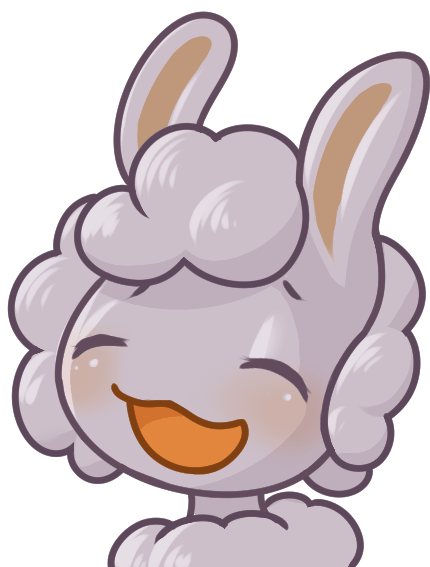Op characters are boring and miss the whole point of the game. Flavorful characters that have a real chance of dying is what makes DND fun.
Flavorful characters can be quite OP in their specific area of expertise (no pun intended) and bad at other stuff.
Why do we always need to pretend that it’s one or the other?
You can see it in the Stardust Crusaders arc on Jojo. Jotaro is truly OP but most of the fights his raw power isn’t really what’s needed to beat the villain of the week.
I concur with the other poster to make the encounters more like a puzzle. Maybe make the bad guys know how the OP characters operate after a couple of encounters and they set up a trap to incapacitate if the OP character keeps doing what they’re doing.
The possibilities are endless.
This is the stormwind fallacy
Very interesting, now roll a [dump stat] save.
deleted by creator
deleted by creator
I mean, it’s a bad solution, but it’s not exactly a bad take in response to the post. It’s very true that a DM can easily match what ever OP thing the player wants to pull, so a pompous little shit trying to ruin the game getting a slap is very much not out of line.
Just because there are far better solutions doesn’t make the entire take bad.
Idk the “Shadow Link” solution is pretty great all around. There is nothing more fair than matching someone at their own game and challenging them to think creatively to best it.
My character is such a moron it’ll break your campaign
I fear no power gamer, but that thing… That thing scares me.
The DM is the arbiter of reality. You’re not doing shit unless they allow it.
Yup, I’m here to make sure everyone has fun. Barring that, I’m here to make sure the most possible people at the table have fun.
Eh, disagree. Unless everyone is power gaming to the same degree (which can be fun!), an OP character being adequately challenged will probably result in all the other players feeling irrelevant.
I mean… personally I’d feel more irrelevant if there was an OP dude in the party while everyone else was just an average player. But overall? If you have a shitty DM, maybe people could feel irrelevant but balancing a game is just part of the job for a DM. There are plenty of situations I can think of off the top of my head where you can actually empower the other players by having threats that they need to overcome to save the “OP character”. Or situations in which the OP character has to hold stuff back while the other PCs are dealing with other stuff.
A challenge should be tailored to the party, true, but the party is made of individuals. You have to play to ALL of their strengths and weaknesses. Focusing on just the OP will fuck over everyone else and ignoring him will fuck over everyone else.
It really depends.
I’m thinking about 3.5 in particular, where an optimized wizard will be able to do the job of the rest of the party (assuming they’re built to be fine, but not power-gaming), better than them.
There’s no real in-world way to balance that. Either the DM Fiats the power-gamer weaker, the DM tells the power gamer “no”, or the rest of the party power games to. Its just too unbalanced.
If we’re talking 5e, that’s all out the window then. If 3.5’s power runs from 0-10, the strongest 5e build is like a 6, and the weakest is like a 3. Its still extra work for the DM to balance, but can be done all in-world without needing to rely on metagame fiat.
And, of course, there’s lots of other systems out there, where the above can be more true or less true depending on what kind of game it is, though 3.5’s power ceiling is probably higher than 95% of the systems out there.
The real question is: how do you make combat balanced for both the OP gun wielding monk that dishes out 70 damage a round at lvl 7, and the two new people at the table that are lucky to get 15 damage in and are starting to feel a bit overshadowed?
Based on a true story
DR, charm effects, make the gun an unsafe choice due to the setting, give the other players a situational advantage like a fixed or crew-serviced weapon, make the fight more of a puzzle than pure action, give the fight stages where different types of damage are necessary, let the fight itself be avoided or changed with diplomacy.
Hell, don’t worry about it. Exploration, interaction, and combat are all equally important in a successful tabletop game; and if they aren’t equal, there is a reason combat comes third in the list.
Magic items that are more useful for the beginners. So in this case… magic weapons that aren’t monk weapons, spell scrolls, holy water, armor, etc.
Chronomancer wizards – let me try anyway…
L10 Chronomancer wizard enters the room, winks, and five L4 concentration spells, and one L5 concentration spell happen simultaneously (requires just under an hour of prep, L10 feature, catnap spell, a lot of spell slots (11 L3 or higher), and a bunch of familiars).
DM: dafuq
L15 Chronomancer wizard enters the room, winks, and burns three legendary resistances and forces a failed save, autokilling the BBEG.
DM: ah, but that’ll be four points of exhaustion!
Chronomancer: (shrugs) I magic jarred into this critter who is immune to exhaustion and can now force anyone to fail at any time without recourse.
DM: dafuq?
Ok cool. You accend to godhood and become God of lonewolf badass pedants. See you next week.
Everyone else that actually showed up to play this final game for fun, the “BBEG” was just his main minion, the real BBEG is auto summoned here when he dies. What do you do?
Meow
😺
My struggle is when we level and a player’s weird multi-class build (that was once super situational) suddenly clicks and they’re everywhere on the map all at once and/or doing crazy damage and/or employing super strong crowd control. SuripiseOP can really screw up my planning.









